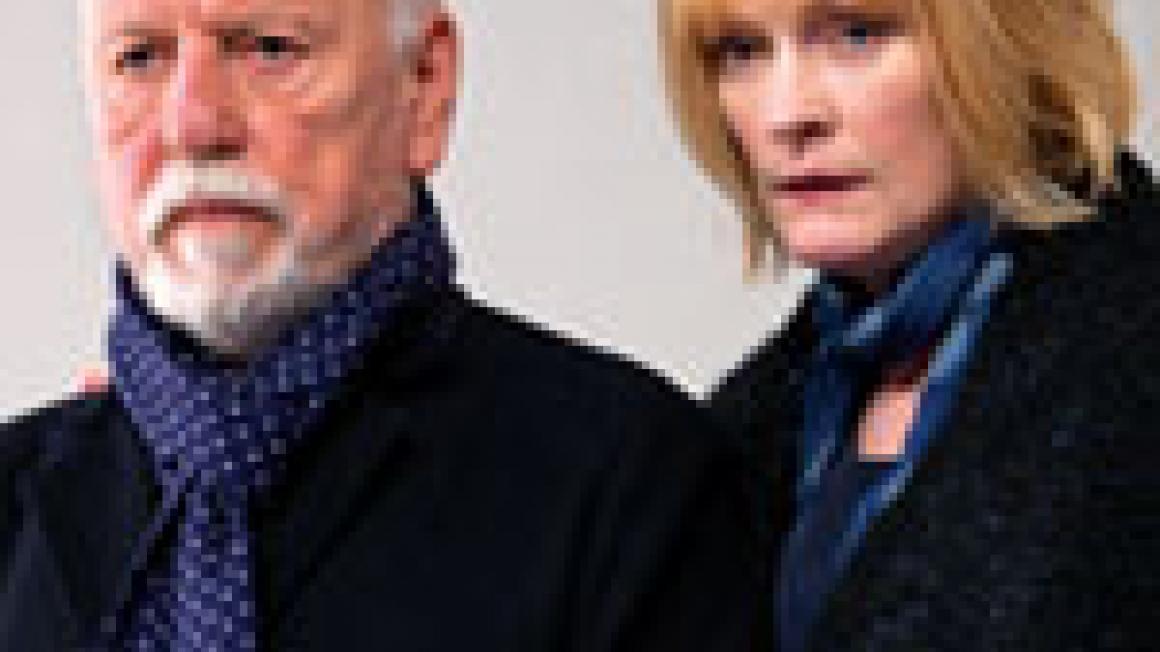THE FATHER
 Now here’s a tricky thing: how can I persuade anyone to go to one of the most devastatingly sad plays ever? French playwright Florian Zeller’s The Father made me cry more than any other play I can remember. It doesn’t make light of tragedy, but it casts light, expands one’s understanding. And if, in the process, there’s a moment of lightness to be found, Zeller milks it.
Now here’s a tricky thing: how can I persuade anyone to go to one of the most devastatingly sad plays ever? French playwright Florian Zeller’s The Father made me cry more than any other play I can remember. It doesn’t make light of tragedy, but it casts light, expands one’s understanding. And if, in the process, there’s a moment of lightness to be found, Zeller milks it.Translated by clever Christopher Hampton, and directed with forensic precision by James Macdonald, the play places us inside the disoriented head of 80-year-old Andre – just as Marianne Elliott’s production of The Curious Incident Of The Dog In The Night-Time is a vivid visual evocation of how it feels to be inside the head of a boy with Asperger’s syndrome. So in this play, we see and hear only what Kenneth Cranham’s elderly Andre sees and hears. It’s Cranham’s greatest performance ever, Lear-like in its intensity.
Once a successful engineer, Andre is now sliding irretrievably into dementia. He looks well, dapper even, in his silk spotted cravat, though it looked better with his navy linen suit than with his stripy pyjamas, which he seldom gets out of these days. His latest carer has left, because he accused her of stealing his watch. Not so. He has just forgotten – again – where he hid it. Moreover, he has not just lost his watch, but he is losing his mind and has mislaid his sense of time. Hours, weeks, years have vanished, replaced by befuddlement and a growing paranoia. In a very shocking scene, his son-in-law hits him. Or did he simply imagine it?
Bach’s music stops and starts, gets stuck on a phrase, repeats, races, wavers. The blanks in his head are reflected in Miriam Buether’s set, which gradually empties. With each new scene, a picture, a vase, a chair, has vanished.
As his grasp of who’s who and what’s what falters, so does ours. Is Andre’s devoted daughter Anne the blonde (Claire Skinner, increasingly fraying at the edges)? Or is she the dark-haired one (Rebecca Charles, kind but firm)? And where’s his other daughter, Elise, the one he has always loved most? He may not be in full possession of himself, but he still has the power to hurt, even if the parent-child relationship has been inverted.
‘Who exactly am I?’ he cries, echoing a stricken, humbled King Lear. ‘I feel as if I am losing all my leaves.’ It’s a bleak, evocative, indelible image.
Until 13 June at Tricycle Theatre, Kilburn High Road, London NW6: 020-7328 1000, www.tricycle.co.uk


